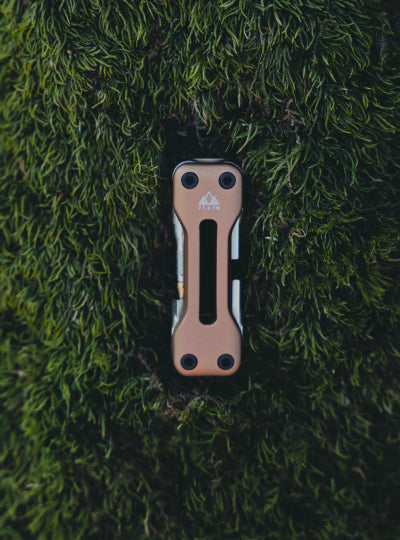PNW Components was founded by Aaron Kerson and his wife Emily, who are both passionate mountain bikers. The couple saw an opportunity to use their years of cycling industry experience and industry connections to launch a component company that would keep its overhead costs down and pass those savings onto their customers. PNW’s current product line focuses mostly on dropper posts and a few other components. What will likely catch your eye, however, is the price of these posts compared to others on the market. PNW’s slogan is “Ride more; spend less” after all. The MBA staff figured it was time to put one of these new lowcost droppers to the test to see if it could go up and down as well as the rest.
Tech features: PNW sells the Rainier in either a 31.6 or a 30.9 diameter with 125 millimeters of infinitely adjustable travel. The post is internally routed and features a small handlebar-mounted remote that can be placed on either the right or left side. The overall length of the post measures 425 millimeters, and the post with the remote weighs 580 grams. If you’re looking to purchase one of these droppers, you can order one directly for $260 from www.pnwcomponents.com.
Field test results: Dropper posts have come a long way over the past few years, but they’re still not perfect for a few reasons. First, they tend to be an expensive upgrade to your bike, typically costing around $400. Second, the reliability of many posts has been poor. The Rainier post hopes to solve those problems with its $260 price tag and simple design, which makes servicing the post a breeze. We installed our new Rainier post on the Renovo FatAsh from this month’s test fleet. PNW included cable and housing, as well as an instruction manual right inside the packaging. Riders who have installed internally routed dropper posts before will find the process easy; however, some frames will be harder to route than others. Our Renovo test bike had internal guide routing, which made the installation like a walk in the park. We cut our cable to the desired length and used the barrel adjuster to fine-tune the cable tension. Once the post was installed, we hit the trails. The Rainier post has a solid feel with a very minimal amount of side-to-side play; it is on par with other posts we’ve ridden that cost twice as much. The remote lever has a relatively comfortable feel, although it’s not the most ergonomic we’ve seen. Regardless, it worked well throughout our test and did not present any actuation issues. The post is fairly long, so shorter riders may need to measure their seat tube before purchasing this post to ensure a proper fit. We also noticed this post takes a little more pressure to engage. Riders under 135 pounds may experience difficulty lowering their PNW post for this reason. For the majority of our testers, however, that was not a problem at all. Overall, we found the Rainier post functioned well throughout our testing, proving to be a reliable dropper with a lower price than the top dogs. That’s a win in our books.
See the full article here.






